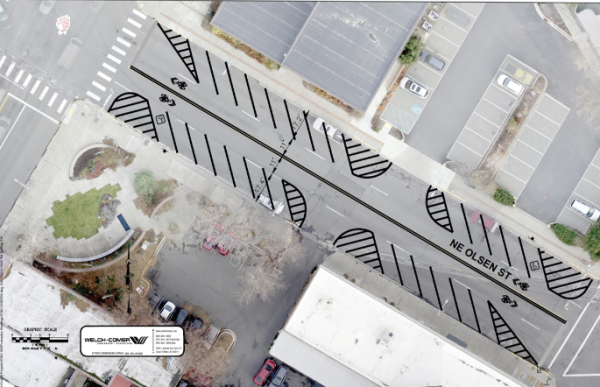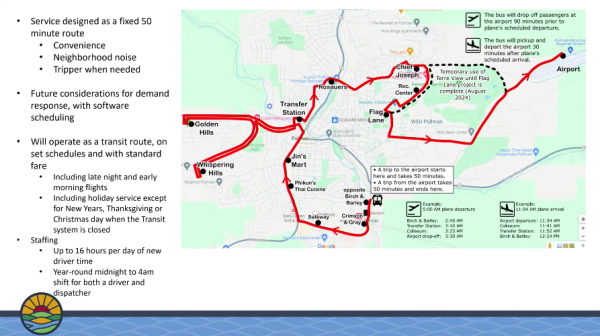Eco-friendly bill could lead to potential gas price increase
House Bill 1110 to reduce greenhouse gas emission from transportation fuels
ANA MARIA ALANIZ MENDOZA | DAILY EVERGREEN FILE
Rep. Joe Schmick (R-Colfax), says California has already added a 16 cents per gallon increase, and it will increase to 20 cents per gallon by the end of 2020.
April 1, 2019
A bill that aims to reduce air pollutants from diesel and gasoline fuels could lead to a potential gas price increase of 30 cents per gallon.
The House approved HB 1110, which is a bill to decrease greenhouse gas emission from transportation fuels. State Rep. Joe Schmick (R-Colfax) said the House Committee of Appropriations sponsors the bill and has representatives from across the state like Rep. Joe Fitzgibbon (D-Burien), Rep. Vandana Slatter (D-Bellevue) and Rep. Shelley Kloba (D-Kirkland).
“By looking at other states, it shows the effect of what is to come in our state,” Schmick said.
He said California has already added 16 cents per gallon, and by the end of 2020, it will increase to 20 cents per gallon. He said there will be a 41-cent increase total by 2040.
“[California] is ahead of us,” Schmick said. “They’ve been doing this. They’ve had this in place, and this has been the result.”
If the same bill that passed in California also passed in Washington, he said he expects both bills would have similar standards.
In 2014, Schmick said a Climate Legislative and Executive Workgroup made a recommendation regarding low-carbon fuel standards. The group concluded that it is not an efficient program to help Washington meet gas reduction emission targets, he said.
“I think that if this is fully implemented — and it’ll take a little time to do it — you can expect your gas prices to go up,” Schmick said.
Maxwell Dwyer, a junior accounting major, said he already spends $20 to $30 weekly on gas.
“I would kind of have to spend more,” Dwyer said. “Most of the driving I do, I can’t really cut out, and I don’t really have the money already.”
Dwyer said if the bill passed, he would have to rearrange his budget.
“It would force me to try and have to cut out different things,” he said.
Schmick said if the bill passes, residents can also expect an exponential rise in gas prices over the years.
By 2028, the bill is meant to reduce the 2017 greenhouse gas emissions by 10 percent. By 2035, it aims to slash the 2017 emissions by 20 percent per unit of transportation fuel energy.





















